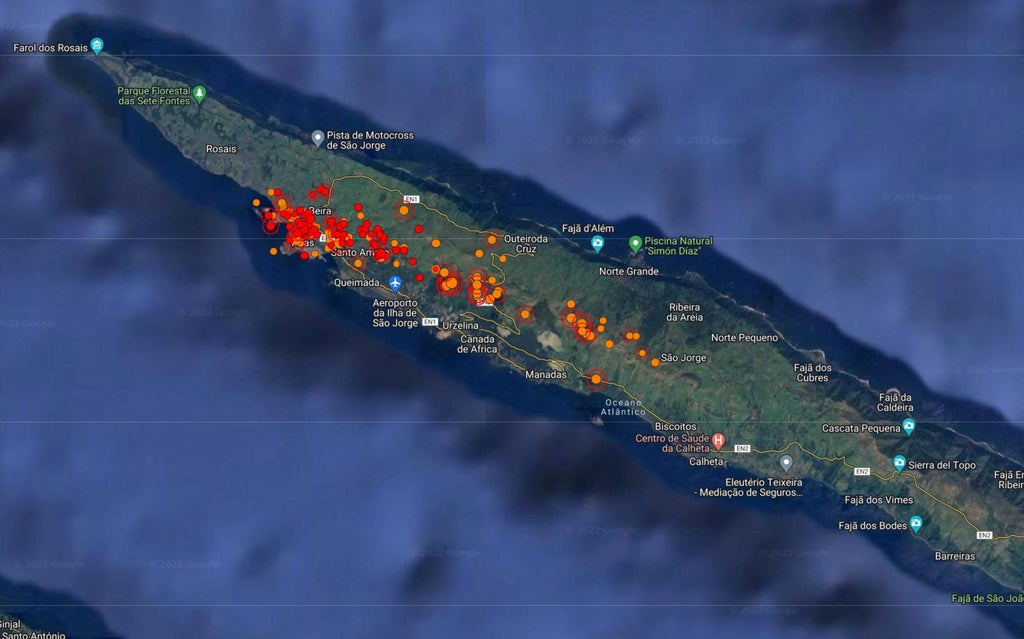
At least 1,100 small earthquakes recorded in the span of 48 hours in Portugal’s Azores archipelago have spurred authorities to activate an emergency plan.
The earthquakes were reported from the mid-Atlantic volcanic island of Sao Jorge on Saturday afternoon. Authorities have urged locals to stay calm and follow official recommendations.
The magnitude of the quakes ranged from 1.9 to 3.3, Qui Marques, head of the Azores archipelago’s seismo-volcanic surveillance centre Civisa, told Reuters on Monday. Of these, 63 were felt by the local population, reported the Lusa news agency.
Most of them occurred in an area between the village of Velas, in the island’s south, and Fajã do Ouvidor, on the north coast and have caused no damage so far, said Mr Marques.
Even though Sao Jorge’s Urzelina volcano last erupted in 1808, the Azores Civil Protection authority requested an evaluation by experts from the region’s volcanic surveillance centre, as the increase in seismic activity was reminiscent of swarms of earthquakes detected prior to the eruption of the Cumbre Vieja volcano on Spain’s La Palma island last year.
Civisa, which has sent a team on ground to set up two more seismic monitoring stations, is yet to establish the significance behind these low intensity quakes. The teams will also measure soil gases, an indicator of volcanic activity.
“We are monitoring the situation, but it is still too early to have an idea of the pattern that this crisis is following,” Mr Marques was quoted as saying by the Portuguese American Journal.
“Right now, our concern with this system is the same concern that we should have with any active volcanic system. We have an active volcanic system that currently has a seismic crisis. We will continue to monitor it,” he added.
Meanwhile, Luis Silveira, the mayor of the municipality of Velas, activated the emergency plan as a preventive measure following the seismic activities.
Sao Jorge is one of the nine islands making up the Azores and is home to about 8,400 people.
It is also a part of the archipelago’s central group and includes the popular tourist destinations of Faial and Pico, which are also volcanic.
Additional reporting from wires







